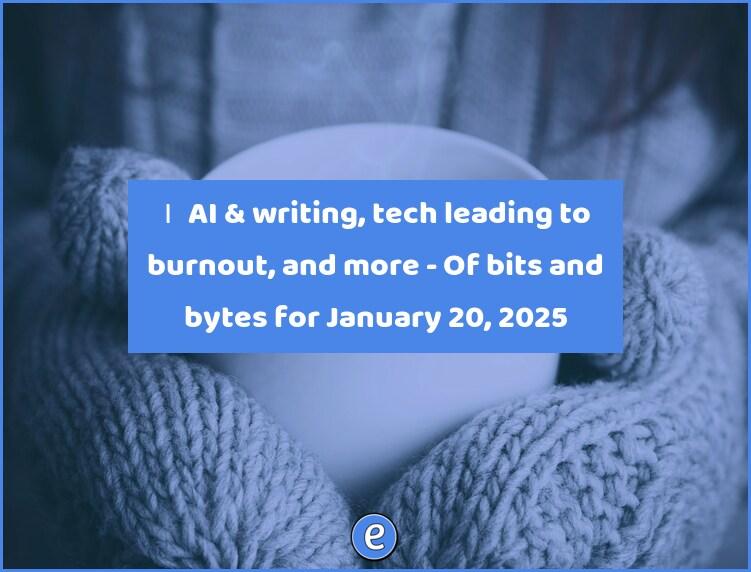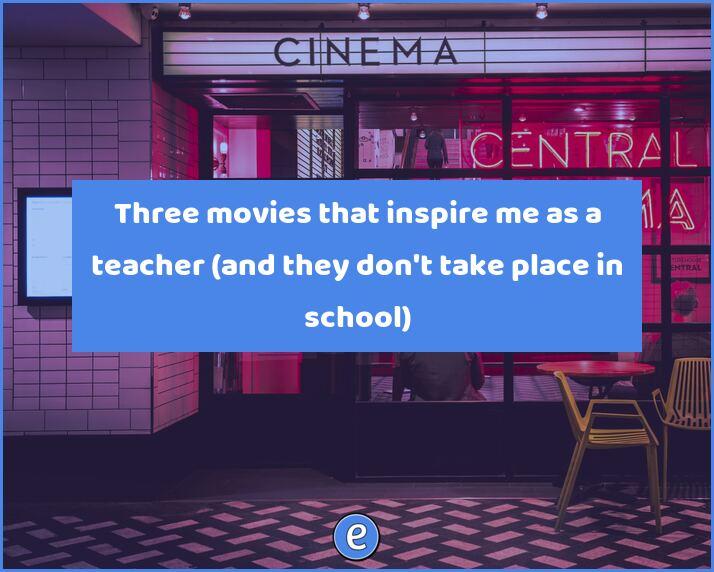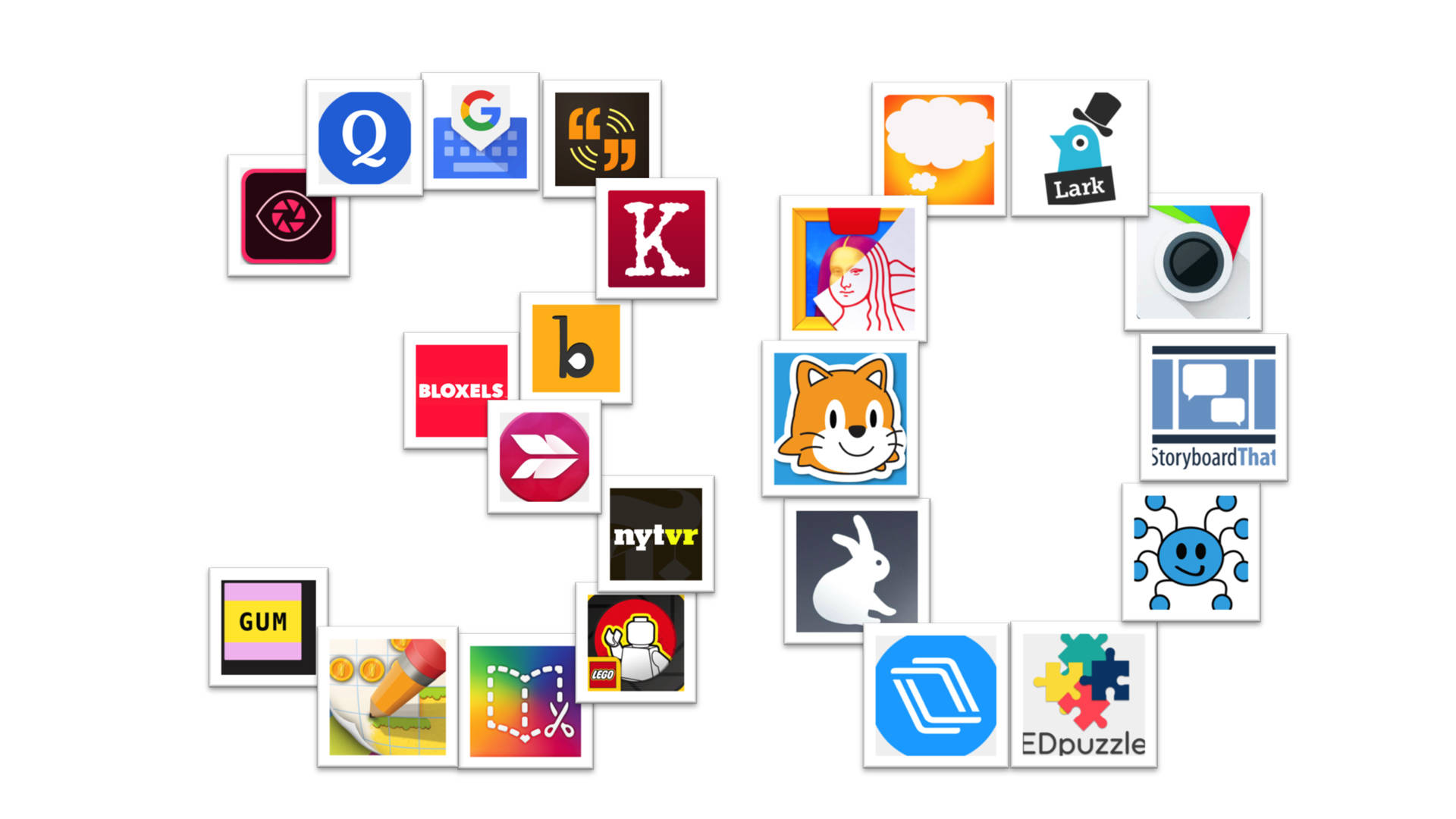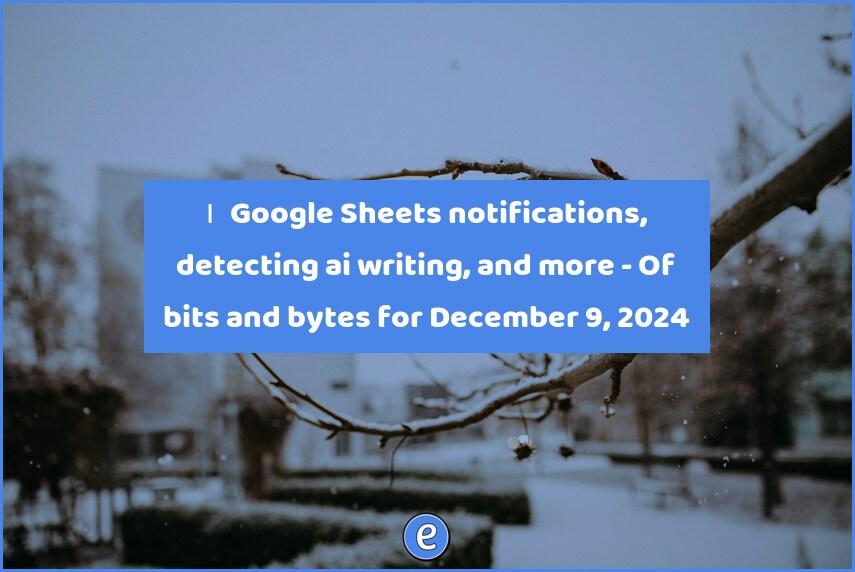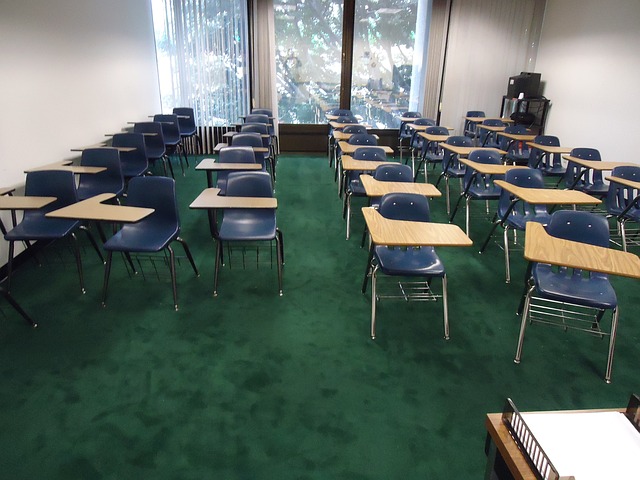🏂 AI & writing, tech leading to burnout, and more – Of bits and bytes for January 20, 2025
Internet Travels
Of bits and bytes is my weekly round up of interesting links and ideas I discovered on the internet. It is published on Mondays for the previous week
Apps
Google Workspace is putting Gemini in all Business and Enterprise plans instead of breaking it out into an additional fee. While this isn’t directed toward the educational market, I wouldn’t bet that something like it is coming. Google has been working hard at separating the 18 and under users in Google Workspace for Education, which will make it easier to offer AI tools for staff.
Pedagogy
Paul Graham suggests that in the future, the ability to write will become increasingly rare as artificial intelligence takes over, creating a divide between those who can write (the “writes”) and those who cannot (the “write-nots”). The author argues that this shift is troubling because writing is essential to clear thinking, and if people abandon writing, they might lose the capacity for deep thought.
Yarn is an AI tool from England designed for story telling in the classroom. Students work as a class with the AI to fashion a story with words and illustrations.
In the world of academic writing, templates and scripts have been both a necessity and an hinderance. While the five-paragraph essay may slow the growth of beginning writers, there is a need for some structural guidance in scholarly writing. The author suggests a more nuanced approach that involves teaching students to develop their own “writing scripts” by reading widely and engaging authentically with writing processes, adapting rigid structures only when the writing context demands it.
This article compares video game forgiveness mechanics like “coyote time” from platformers, such as Celeste, to educational practices, suggesting that a bit of leniency could go a long way in learning environments. By allowing students room for error and a chance to recover from mistakes, we can encourage persistence and engagement. Basically, a fancy way of saying that failure isn’t bad and risk should be encouraged.
Technology
Technology was supposed to save teachers from a lot of the mundane, tedious tasks. But according to a study, instead of easing teacher workloads, learning management systems are piling on the pressure. Using data from a survey and focus groups, the researchers found that rather than ditching outdated methods, new tech tools just added more to teachers’ to-do lists. In some cases, what was meant to simplify — like digital lesson plans — turned into double duty, balancing both paper and digital formats.
The World Economic Forum predicts that by 2030, AI might replace 92 million jobs but create up 170 million new ones, leading to a spectacular net gain of 78 million opportunities. Companies are gearing up for this tech revolution, with many seeking employees skilled in AI, big data, and cybersecurity, while some roles, like postal service clerks and payroll staff, might see a decline as automation takes over routine tasks.
Tips
It turns out that kids can’t use computers. They are more than capable at word processing or creating a presentation, but asking them to dig a little deeper, like reinstalling an OS, and they quickly are flummoxed. The author, Marc Scott, suggests that our obsession with user-friendly systems and sleek gadgets like iPhones has turned us all into digital dummies, easily mystified by a malfunction. Scott argues for a back-to-basics approach: stop shielding kids from tech hassles and let them learn by doing, embrace potentially more complex Linux for a genuine tech education, and encourage schools to step up their curriculum.
Pop Culture
Twitch streamer albrot discovered a loophole in the river crossing code in Apple II Oregon Trail that essentially granted immortality to players — at least until they tried moving on. After some tinkering, alrbot spent 15,000 years on the trail.
Are you overexplaining? Research shows that great leaders inspire with abstract, visionary language instead of drowning in details. By focusing on the big picture, you can appear more powerful, empower your team’s creativity, and foster meaning in their work. Learn how shifting your communication style can transform your leadership.
Potpourri
Hugo Deans at 8 years old made a discovery in his backyard that shook up the world of earth science. While initially thinking the ants were indulging in some seed-carrying shenanigans, it turned out they were involved in a much more complex relationship with wasps and oak trees—something called chemical mimicry. Hugo’s observation, alongside the expertise of his dad, Andrew Deans, an entomology professor, revealed that wasps cleverly produce fatty-acid-rich caps on galls that trick ants into carrying these galls back to their nests, providing a safe haven for the wasps’ larvae.
Extra Credit
Here are extra links that I found interesting that may or may not be education related or interesting to you and I didn’t want to lose them.
Thank you!
Major props if you’ve made it this far, you are a rockstar! Feel free to contact me with questions, ideas, concerns, or your thoughts on the next Marvel movie. In fact, I love to discuss about any topic and then wonder how it intersects with education, so fire away!
“Yesterday is history, Tomorrow is a mystery, but Today is a gift. That is why it is called the present.” – Oogway, Kung Fu Panda

By design, the vast majority of Of Bits and Bytes readers never pay anything for the links, commentary, and tips it provides. But you made it all the way to the end of this week’s edition — maybe not for the first time. Want to support more journalism like what you read today? If so, click here.
Be sure to subscribe to my YouTube channel and join your fellow educators on the Eduk8me email list!
